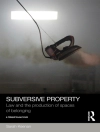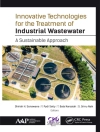A top priority in climate research is obtaining broad-extent and long-term data to support analyses of historical patterns and trends, and for model development and evaluation. Along with directly measured climate data from the present and recent past, it is important to obtain estimates of long past climate variations spanning multiple centuries and millennia. These longer time perspectives are needed for assessing the unusualness of recent climate changes, as well as for providing insight on the range, variation and overall dynamics of the climate system over time spans exceeding available records from instruments, such as rain gauges and thermometers.
Tree rings have become increasingly valuable in providing this long-term information because extensive data networks have been developed in temperate and boreal zones of the Earth, and quantitative methods for analyzing these data have advanced. Tree rings are among the most useful paleoclimate information sources available because they provide a high degree of chronological accuracy, high replication, and extensive spatial coverage spanning recent centuries. With the expansion and extension of tree-ring data and analytical capacity new climatic insights from tree rings are being used in a variety of applications, including for interpretation of past changes in ecosystems and human societies.
This volume presents an overview of the current state of dendroclimatology, its contributions over the last 30 years, and its future potential. The material included is useful not only to those who generate tree-ring records of past climate-dendroclimatologists, but also to users of their results-climatologists, hydrologists, ecologists and archeologists.
‘With the pressing climatic questions of the 21st century demanding a deeper understanding of the climate system and our impact upon it, this thoughtful volume comes at critical moment. It will be of fundamental importance in not
only guiding researchers, but in educating scientists and the interested lay person on the both incredible power and potential pitfalls of reconstructing climate using tree-ring analysis.’, Glen M. Mac Donald , UCLA Institute of the Environment, CA, USA
‘This is an up-to-date treatment of all branches of tree-ring science, by the world’s experts in the field, reminding us that tree rings are the most important source of proxy data on climate change. Should be read by all budding dendrochronology scientists.’, Alan Robock , Rutgers University, NJ, USA
Inhoudsopgave
part i: introductory section.-part ii: scientific bases of dentroclimatology.- part iii: reconstruction of climate patterns and values relative to today’s climate.- part iv: applications of dendroclimatology.- part v: overview.
Over de auteur
Malcolm K. Hughes: Regents’ Professor of Dendrochronology and Director Emeritus, Laboratory of Tree-Ring Research, University of Arizona is a paleoclimatologist specializing in the use of tree rings and other annual records to reconstruct and understand the past behavior of the climate system on geographic scales from local to global, and from time scales ranging from years to millennia. He has carried out research in Europe, North America, Russia, China, India and the Eastern Mediterranean region. Professor Hughes is a Fellow of the American Geophysical Union and Chair-Elect of the Section on Geology and Geography of the American Association for the Advancement of Science.
Thomas W. Swetnam, Professor of Dendrochronology and Director of Laboratory of Tree-Ring Research, University of Arizona, is a forest ecologist and dendrochronologist specializing in the study of forest fires, insect outbreaks, and forest demography and the climatic and human causes of variations in forest ecosystems; graduate training in forestry, watershed management, and dendrochronology at the University of Arizona; has carried out extensive research in western North America, and in areas of South America and Siberia, Russia.
Henry F. Diaz is a research climatologist with the Cooperative Institute for Research in Environmental Sciences at the University of Colorado-Boulder. He is a recognized expert on the El Niño phenomenon, modern and paleo-climate changes, climate impacts, and other topics, and has published dozens of scientific journal articles on various topics related to the subject of climatic variations. He has edited several books, on topics such as El Niño, Climate Change and Water Resources, Climate Change in Mountains, and Climate Extremes and Society. He retired from the National Oceanic and Atmospheric Administration (NOAA) in2007 after a distinguished 33 years career in the federal civil service. Dr Diaz is a Fellow of the American Meteorological Society.












